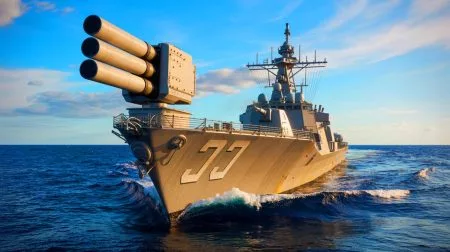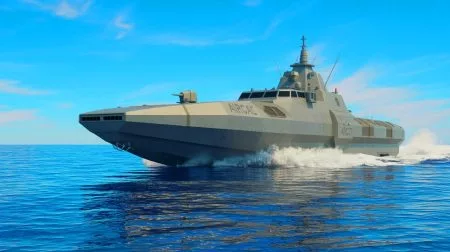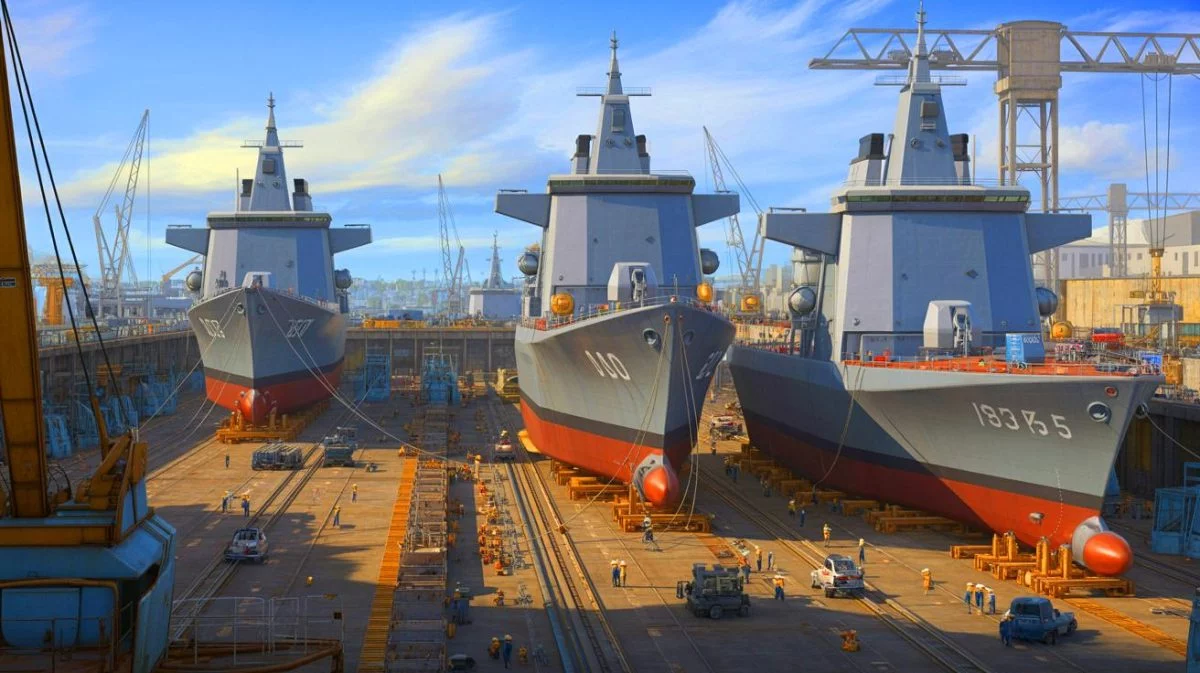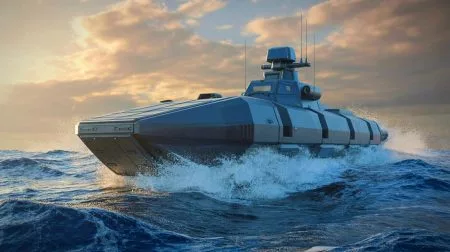| IN A NUTSHELL |
|
In recent years, the European naval shipbuilding industry has faced significant challenges, primarily due to the oversaturation of shipyards competing for limited contracts. This situation has led to calls for consolidation to strengthen the industry’s global competitiveness. French Navy Chief of Staff Adm. Nicolas Vaujour has highlighted the need for a more unified approach, emphasizing that Europe must streamline its naval shipbuilding capabilities to remain viable in the export market. As nations strive to protect their regional industries, the path to consolidation is fraught with political and economic obstacles, yet it remains a crucial step towards achieving long-term success for Europe’s naval sector.
The State of Europe’s Naval Shipyards
Europe currently hosts approximately 14 major shipyards, each vying for a piece of the lucrative naval contracts pie. According to Adm. Nicolas Vaujour, this number is unsustainable, and a reduction to just three or four key players would significantly enhance competitiveness on the global stage. The issue stems from the lack of a cohesive naval strategy across Europe, as individual countries prioritize their national agendas over a unified approach. This fragmentation hinders the ability to effectively compete with non-European shipbuilders who benefit from streamlined operations and consolidated resources.
The creation of the Naviris joint venture between Italy’s Fincantieri and France’s Naval Group was intended to be a stepping stone towards broader European consolidation. However, Adm. Vaujour noted that Naviris has not met expectations in terms of securing export contracts and leading consolidation efforts. Despite winning a portion of a €1.5 billion contract to upgrade Horizon-frigates, Naviris has struggled to achieve its broader goals. This underscores the challenges faced by the European naval industry in aligning national interests with collective ambitions.
Challenges of Political and Economic Divergence
One of the primary obstacles to the consolidation of Europe’s naval shipyards is the divergence in political and economic strategies among European nations. Each country has developed its own naval strategy, which often conflicts with those of its neighbors. For instance, France and Italy have differing views on ship sizes, with France favoring smaller frigates and Italy opting for larger vessels. This divergence complicates efforts to establish a cohesive approach to shipbuilding and export strategies.
Moreover, political considerations play a significant role, as governments aim to protect regional industrial activities and maintain economic stability. The French Navy Chief underscored the difficulty in choosing between national shipbuilders like Naval Group and Fincantieri, as each country naturally prefers its own industries. This lack of consensus further complicates efforts to create a naval equivalent of Airbus, the successful European aircraft maker, which could consolidate and strengthen the shipbuilding sector.
The Role of Shipyard Mergers and Joint Ventures
To address the challenges facing Europe’s naval industry, mergers and joint ventures such as Naviris are seen as potential solutions. However, the success of these initiatives depends heavily on the willingness of shipbuilding companies to collaborate and integrate their operations. Adm. Vaujour emphasized that creating a unified naval strategy requires the shipbuilding companies themselves to take the initiative, as political efforts alone may not suffice.
Despite the hurdles, there are promising developments on the horizon. France and Italy continue to explore ways to harmonize their efforts, with discussions around “blank hull” orders that could serve either domestic or export needs. Additionally, partnerships with other European countries, such as Norway, offer opportunities for shared work and increased competitiveness. The recent partnership between Naval Group and Norway’s Kongsberg exemplifies this collaborative approach, as the two companies explore potential sales of frigates to the Royal Norwegian Navy.
Future Prospects for Europe’s Naval Industry
Looking forward, the European naval industry must address several key issues to remain competitive on the global stage. Consolidation remains a critical objective, but it will require a delicate balance of political will, economic strategy, and industrial collaboration. The potential for creating a naval equivalent of Airbus hinges on the ability of European nations to set aside national interests in favor of collective success.
In addition to consolidation, the industry must focus on innovation and efficiency. By streamlining production processes and embracing new technologies, European shipyards can enhance their appeal to international buyers. The demand for shorter lead times, as highlighted by Adm. Vaujour, indicates that speed and flexibility are paramount in meeting the needs of potential clients. As Europe navigates these challenges, the question remains: Can European nations find a way to unite their naval strategies and build a stronger, more competitive industry?
Did you like it? 4.7/5 (26)







Isn’t it ironic how oversupply can lead to inefficiency? 🤔
Thanks for the insightful article! Learned a lot about naval shipyards.
Why don’t they just make a European “Super Shipyard”? Seems logical!
Naviris struggling sounds like a classic case of too many cooks in the kitchen.
Does anyone else find it amusing that Europe can’t agree on ship sizes? 😂